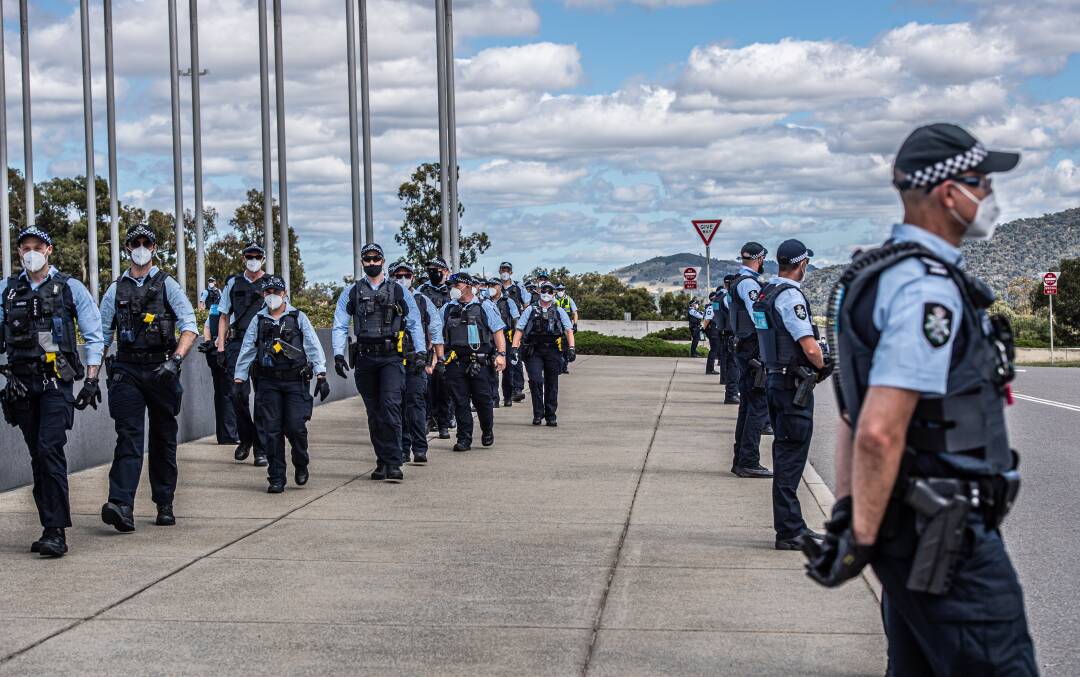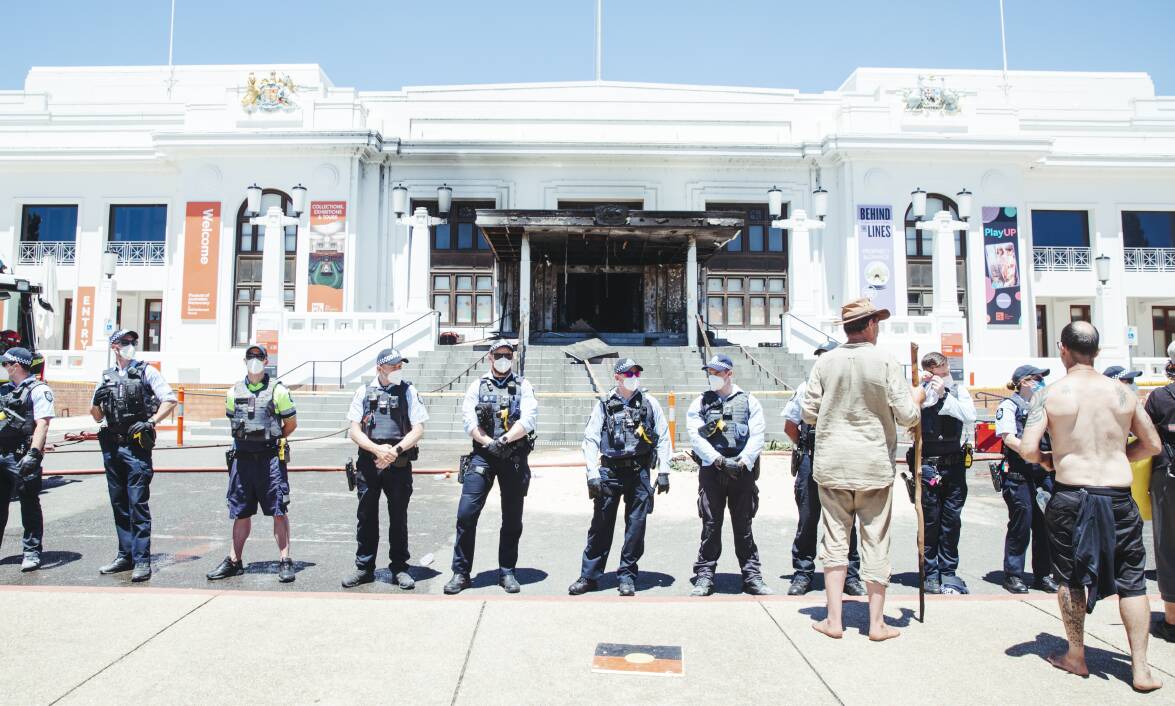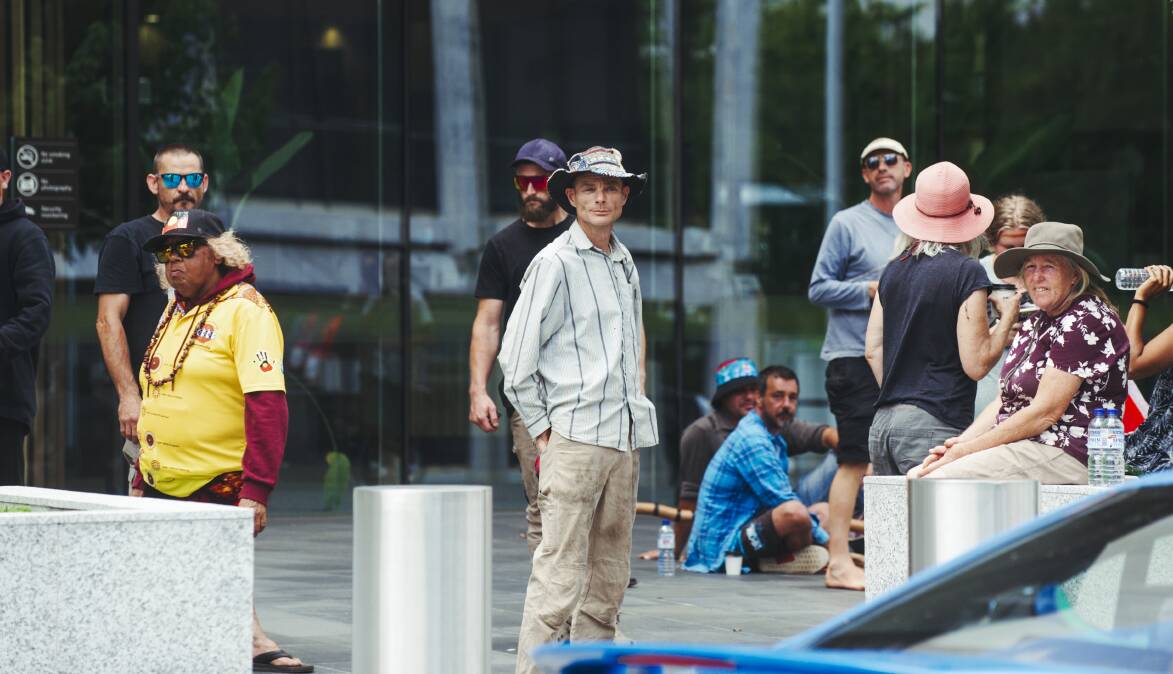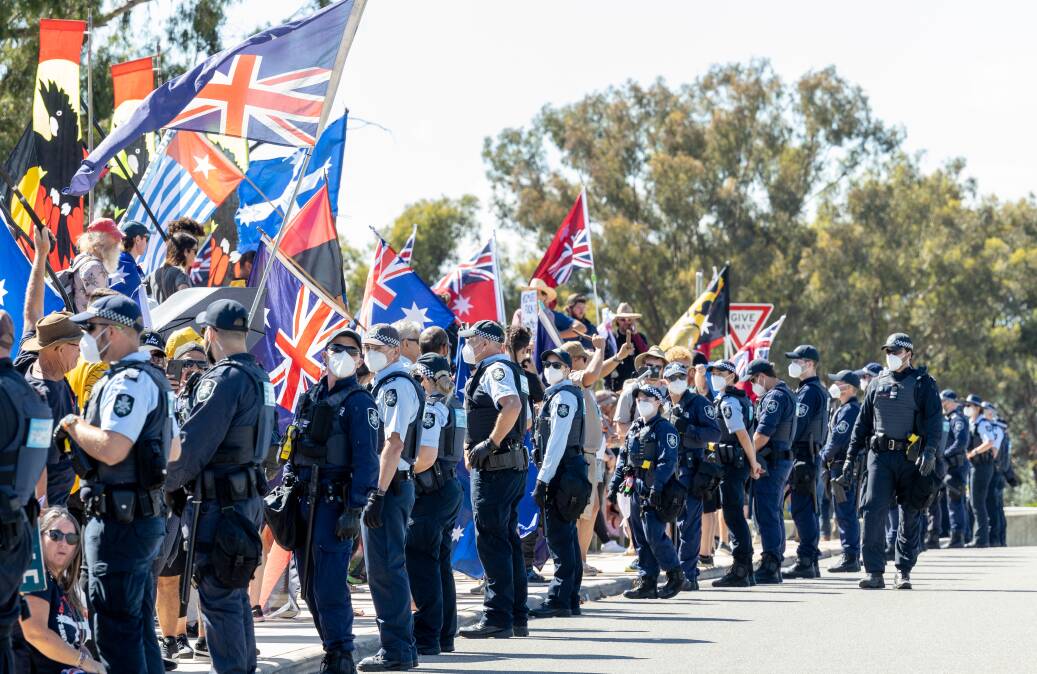
The cost to police of managing so-called "issues-motivated groups" which continue to protest in the ACT, camping and lighting fires on the lawns of Parliament House, disrupting traffic and business activity, and breaching the peace, has blown out to $3.5 million.
This is an increase of $1.5 million since early March, when police delivered their most recent cost estimate.
As this cost sits outside the contractual policing arrangement between the ACT government and the Australian Federal Police, it will be billed back to the ACT taxpayer under an extraneous cost recovery.
ACT police said there have been 42 arrests of members of these issues-motivated groups since February, with over 40,500 hours of policing taken away from customary police work.
The police executive are careful in their language not to criticise or condemn the protesters, who have fallen dramatically in number since the peak of the activity in February when around 10,000 people gathered on the lawns outside Parliament House.
However, they state unequivocally that "the diversion of ACT Policing resources has impacted other areas of operations including general duties policing, Criminal Investigations, Road Policing and others".

Among the rank and file officers, who have to deal with the protesters on a daily basis and endure the baiting, abuse and offensive language associated with these encounters, there is a ever-growing sense of frustration, a sentiment shared by much of the Canberra public and most recently by residents of Yarralumla, whose called police over protest noise outside the Governor General's residence.
The main Convoy to Canberra protest body from earlier this year has now splintered into several small groups, still with anti-vaccine, sovereign rights and so-called, cryptic "freedom" motives, which actively use social media as a conduit for their various issues and post their interactions with police on social media channels.
Police in the territory have been dealing with various non-affiliated protest groups and their activity since late November. The protests culminated in an international incident in December last year, when the doors and portico of Old Parliament House, now the Museum of Australian Democracy, were deliberately set on fire.
"Some low-level protest activity is still occurring on week days and there continues to be organised activity on weekends, sometimes involving up to 200 people," police said in a statement.

"While the number of interstate protestors staying in the region has reduced, police expect protest activity to continue for at least the next few weeks."
Among the most common charges laid against the protesters are breach of the peace, assault/obstruct police and trespass.
A small number of protestors have been charged with breach of bail when either failing to attend court or for being present in areas not permitted under bail conditions.
Aside from assault, all are regarded as relatively minor offences, punishable by a fine or court order.
Only in the case of those charged with the Old Parliament House arson has the court imposed bail conditions for offenders, most of whom are from interstate, to leave the territory.

The ACT Human Rights Act has been cited by the protesters as a defence for their ongoing local activity.
Under section 15 (1) of the act, everyone has the right for peaceful assembly. It is also unlawful under the act for police, as representatives of a public authority, "to act in a way that is incompatible with a human right".
The National Capital Authority has "right to protest" guidelines in which it states no formal approval is required to conduct a protest or demonstration within the parliamentary precinct but also points out that presiding officers, such as the President of the Senate and the Speaker of the House of Representatives, have the discretion on allowing protests, demonstrations and public assemblies "including public activity" within the precinct.







